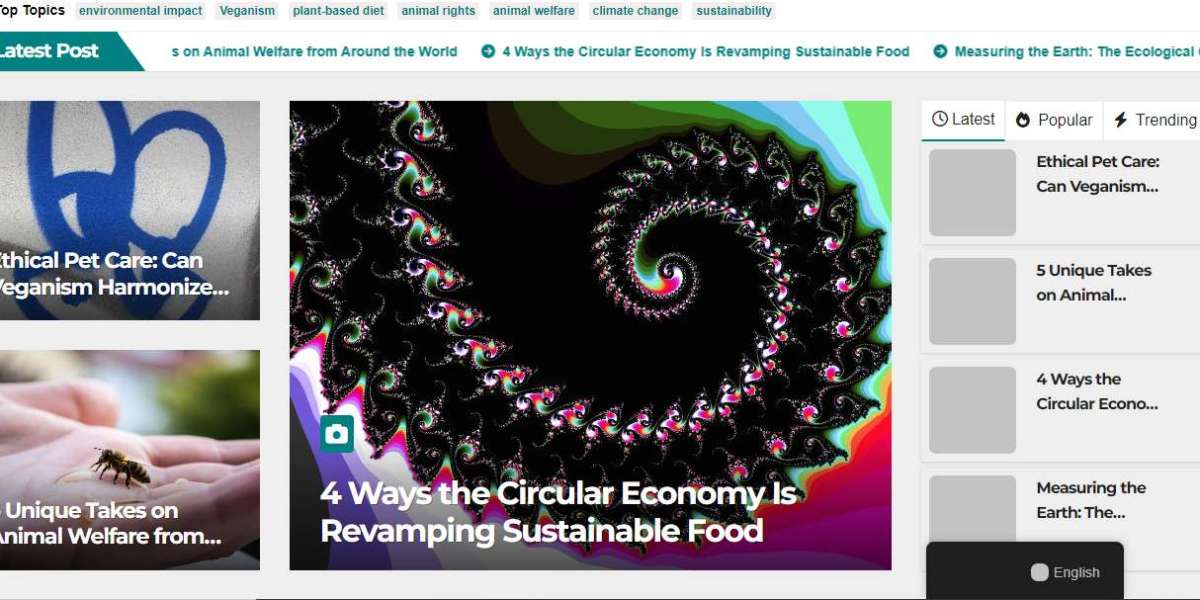In recent years, veganism has grown from a niche movement to a global lifestyle choice that emphasizes compassion, environmental sustainability, and ethical consumption. This holistic approach is driven by a desire to reduce harm to animals, minimize environmental impact, and promote health through a plant-based diet. Here, we explore the core concepts of veganism, including animal rights, sustainable living, ethical consumption, and how these practices contribute to a better world.
Veganism: A Compassionate Lifestyle
At its core, veganism is a lifestyle that seeks to eliminate all forms of exploitation and cruelty to animals for food, clothing, or any other purpose. Vegans choose plant-based diets and cruelty-free products as a way to align their daily choices with values of compassion and respect for all living beings. This approach goes beyond dietary choices, encompassing everything from fashion to beauty products, advocating for alternatives that do not involve animal suffering.
Plant-Based Diet: Nourishing the Body and the Planet
A plant-based diet focuses on consuming whole foods derived from plants, such as fruits, vegetables, grains, nuts, and seeds. This diet is not only beneficial for personal health—reducing the risk of chronic diseases like heart disease, diabetes, and certain cancers—but also significantly reduces the carbon footprint associated with food production. Animal agriculture is a major contributor to greenhouse gas emissions, deforestation, and water pollution, making plant-based eating a climate-friendly choice.
Animal Rights and Welfare: Advocating for the Voiceless
Animal rights are at the heart of veganism, promoting the idea that animals are not commodities but sentient beings deserving of respect and protection. Vegan activism often includes raising awareness about the inhumane conditions in factory farms, the fur industry, and other forms of animal exploitation. By advocating for animal welfare, vegans aim to inspire others to make compassionate choices that support the ethical treatment of animals.
Environmental Conservation and Sustainable Agriculture
Veganism and environmental conservation are intrinsically linked. Animal agriculture is a leading cause of deforestation, habitat destruction, and biodiversity loss. Sustainable agriculture practices, such as organic farming and permaculture, prioritize soil health, reduce pesticide use, and promote biodiversity. By choosing plant-based foods, individuals can directly reduce the demand for environmentally harmful practices and support a more sustainable food system.
Ethical Consumption and Cruelty-Free Lifestyle
Ethical consumption extends beyond food to encompass all purchasing decisions, including fashion, cosmetics, and household products. Cruelty-free products are those that are not tested on animals and do not contain animal-derived ingredients. Ethical fashion promotes sustainable materials, fair labor practices, and environmentally friendly production methods, challenging the fast fashion industry’s detrimental impact on both people and the planet.
Vegan Activism and Advocacy: Inspiring Change
Vegan activism takes many forms, from peaceful protests and social media campaigns to community outreach and education. Activists work to inform the public about the benefits of a vegan lifestyle, challenge misconceptions, and advocate for policy changes that support animal rights and environmental conservation. Vegan advocacy emphasizes the power of individual choices to drive systemic change.
Sustainable Living and Green Choices
Sustainable living involves making choices that reduce one’s environmental impact, such as reducing waste, conserving water, and using renewable energy sources. For vegans, this lifestyle also includes reducing consumption of single-use plastics, supporting eco-friendly brands, and embracing a minimalist mindset that prioritizes quality over quantity. Sustainable living is about making conscious decisions that contribute to the well-being of the planet.
Compassionate and Community-Oriented Living
The vegan community is built on principles of compassion, inclusivity, and support. From local vegan meetups to global online forums, vegans connect with like-minded individuals who share their commitment to a cruelty-free lifestyle. This sense of community provides a support system for those navigating the challenges of veganism and serves as a platform for collective action.
Climate-Friendly Practices and Wildlife Protection
Adopting a vegan lifestyle is one of the most effective ways individuals can reduce their carbon footprint. By eliminating animal products, people can lower greenhouse gas emissions, conserve water, and protect natural habitats. Veganism also aligns with wildlife protection efforts, as it reduces the encroachment on wild spaces that results from livestock farming.
The Future of Ethical Living
Veganism represents a shift toward a more ethical, sustainable, and compassionate way of life. It challenges conventional norms and encourages individuals to reconsider the impact of their daily choices on animals, the environment, and their health. As awareness grows, so does the potential for widespread change, making veganism not just a dietary choice but a movement for a better world.
Whether driven by health, ethics, or environmental concerns, embracing veganism and sustainable living is a powerful way to contribute to a more just and compassionate world.








